Noor Shergill graduated from Smbiosis Law School, Pune, in 2014. He cleared the 2015 Civil Services, with an all India rank of 510. He is currently working as Assistant Director in the Government of India. He is an officer in the Indian Corporate law Service, which is a Group A service under the ministry of corporate affairs.
In this interview we speak to him about:
- Switching from law to civil service
- Getting the right help for UPSC preparation
- Preparation strategy, tips, and advice
How would you like to introduce yourself to our readers?
I am a 26 year old from Chandigarh who loves reading, travelling, watching documentaries, stargazing and photography. I am presently working as Assistant Director in the Ministry of Corporate Affairs, Government of India.
What motivated you to opt for legal studies after school?
I think I was initially attracted to the legal profession by reading about cases in the newspapers. I was impressed by the breadth of the issues handled by the Supreme Court and the faith that people had in the judiciary. I still think that despite all its shortcomings, the legal profession is still a noble one that has a very important role in ensuring a just society.
I loved how it was a prestigious and scholarly profession. I was also inspired by listening to lawyers on TV debates and I wanted to speak and argue like they did. Although, I must admit, my score in Physics, Chemistry and Math had the greatest role to play in pushing me towards Law.
Please tell us about your college experience at Symbiosis Law School, Pune.
I absolutely loved the five years I spent in Pune. I met some very inspirational people and made some great friends. Symbiosis made me a more aware, confident and outgoing person. In college, I got the opportunity to work with the Human Rights Cell. As part of the cell, we got to understand issues ranging from the problems faced by commercial sex workers, disability issues, inequality in education among others. Issues playing out at the national and international level were keenly followed and discussed in the cell. I still have a habit of keeping myself abreast with events taking place around the world and reading extensively about them to form a multi-dimensional opinion due in no small part to the activities of the Human Rights Cell.
Another aspect of Symbi Law’s student life that I found immensely enriching, was the thriving quizzing culture. I was pretty good at quizzing in school and had the opportunity to quiz alongside and against some of the best talent in the country. I consider myself exceptionally lucky in this respect.
Studying in Pune exposed me the diversity of India, I learnt how to live on my own and it taught me the importance of having great friends.
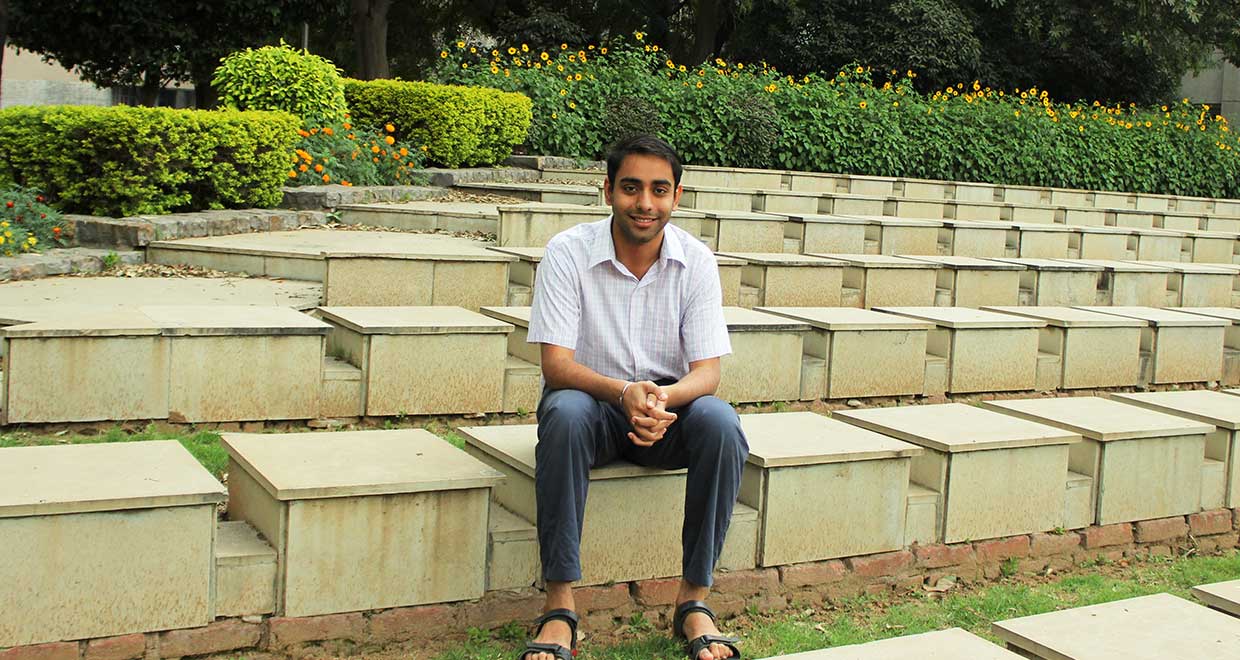
How do you think law schools have a role to play in one’s career trajectory?
There is no definite answer to this question. Great schools are great for a reason, they attract the best students and teachers. Having a good peer group and good teachers is of immense help. Some of the better law schools provide their students with opportunities that give them an edge over others.
However, just going to a good law school is not enough. Drive and ability are the most important things to get ahead in life. Good lawyers are distinguished by their talent and not only the law school they attended.
How important are grades, in your opinion?
Grades are important. They are what other people use to form an opinion about your abilities, your sincerity, your aptitude etc. In that sense they are important. So if you’re looking to get a good job or a scholarship or a fancy LLM, they are quite important.
In UPSC, they aren’t that important. So is the case with legal practice. In both these cases a different skill set is rewarded.
What subjects did you take particular interest in during your law school days?
My favourite subjects were Constitutional Law and Public International Law. I also enjoyed Philosophy and Political Science.
When I was deciding which optional subject to pick for the UPSC exam, I considered all these subjects. I went through the past question papers and syllabus of Law, Philosophy and Political Science. Eventually, I zeroed in on Law because Paper 1 of the optional has Constitutional and Public International Law and those were my two favourite subjects in law school.
The constitution is at the center of so many debates that take place in the country. I consider myself really lucky to have studied it and to have understood its spirit.
Who was your mentor, or main source of inspiration who motivated you all along the way?
I don’t have any one mentor but a pantheon of heroes. Carl Sagan, Alain de Boston , Ravish Kumar, Fali S Nariman, Justice Leila Seth are some of them. Their life and works have been immensely influential to me.
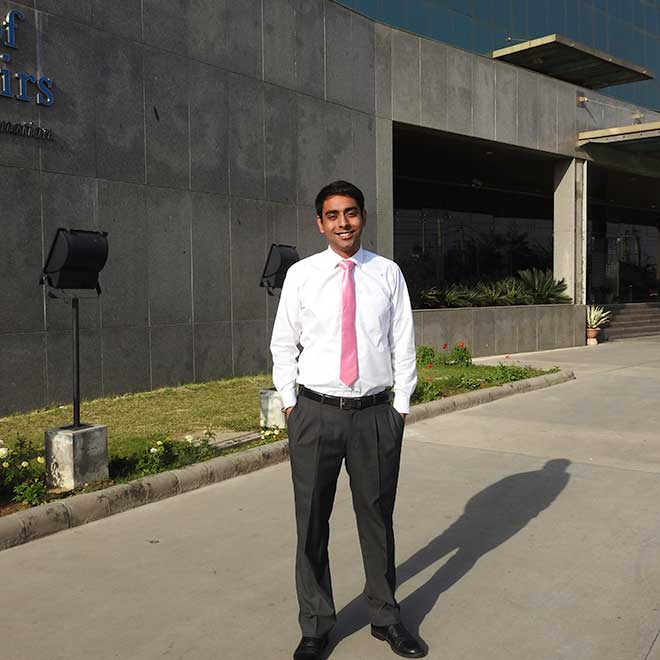
What kind of internships did you engage in during your student years?
The opportunity to intern is the best part of legal education. I remember getting very excited every time I was planning my internships.
A lot of people approach internships with a view to “build their CV”, and I never agreed with this approach. I think internships are a once in a lifetime opportunity to gather unique experiences. I don’t want to discount the importance of interning with law firms and lawyers, but the scope of Law is much wider than that. So, I would urge everyone to think beyond their CVs. Five years is a long time and one should try to get an eclectic blend of internships.
Among other places, I interned at the Mazdoor Kisan Shakti Sangathan (MKSS), which is a social movement in rural Rajasthan. I was drawn to it after reading about the role they played in bringing about the Right to Information Act and the National Rural Employment Guarantee Act. The experience of moving from “India” and living in “Bharat” evoked in me a sense of how narrow, hollow and self serving our urban discourses tend to be. I also made me recognise my privileges and taught me to be more patient and feel less entitled, which are valuable life lessons.
It also made me realise the hypocrisy of Indian elites, like myself. Our elite law schools are fast becoming ivory towers where the privilege of rich kids is perpetuated. It’s easy to find regional diversity but almost everyone comes from pretty much the same class background; city based, English speaking, privately educated and passionate about no other social issue apart from the decriminalisation of homosexuality or the legalisation of marijuana.
This is why I think it’s important to escape the “law-firm trap” when it comes to internships. An internship with a place like MKSS might not impress a partner at a fancy law firm, but it will surely make you think more about essential issues than any law firm internship will. I can guarantee you that !
How did you zero in on UPSC?
The civil services exam is a very unpredictable exam and it is wise not to be too sure of your success. So always have Plan B. I planned to litigate if the UPSC plan didn’t work out, I also wanted to do an LLM and teach. I believe that the Civil Services is one of the many options available to law graduates.
It was initially my parents who encouraged me to take the exams. They always told me that I could do it. Personally, I never thought I would take the UPSC exam. This was mainly due to self-doubt and my belief that I wasn’t good enough. I used to think that people who cracked the UPSC exam were toppers and geniuses.
However, all this changed when I was interning with the Indian Express as a reporter during third year. On the first day of my internship, the UPSC exam results were announced, and I was asked to go and interview the successful candidates. I still remember that when I met and spoke to them I discovered that they were normal people with various interests outside of academics. Not all of them had exceptional academic credentials. What was common to all of them was the hard work that they had put in.
I must have interviewed at least twenty such candidates and I realised that even they had to deal with reversals, low self confidence and self doubting. They were never sure that they would be successful and were actually quite relieved and pleasantly surprised at being successful. It was then that I decided to give the exams a shot.
Do only people with stellar academic performances or from reputed colleges crack the UPSC?
This is not true at all. I am an example of this. I got 39% marks in my Mathematics paper in the class XII exam. In college I was only an above average student. Most people who clear UPSC are from smaller cities and from relatively unknown colleges. There are people who have graduated through distance education, those who studied in vernacular languages and aren’t well versed with English. I now understand, more than ever, the large number of privileges that I have enjoyed. It is much harder for most people to clear the exam than it is for the kind of people I assume visit this website.
Most of the questions of the exam are so basic that any person with basic understanding of current affairs would be able to say something about the issue. The only challenge is to say something about the issue that puts you in the top percentile of all the people writing the exam. This is easily accomplished through repeated practice, analysis and improvement. Here are a few questions from the previous mains exam for you to get a taste of this exam :
Essay :
- Technology cannot replace manpower.
- My vision of India in 2001
- Education without values, as useful as it is, seems rather to make a man more clever devil
- Restructuring of UNO reflect present realities
General Studies :
- What is water-use efficiency? Describe the role of micro-irrigation in increasing the water-use efficiency.
- Discuss India’s achievements in the field of Space Science and Technology. How the application of this technology has helped India in its socio-economic development?
- The frequency of urban floods due to high intensity rainfall is increasing over the years. Discussing the reasons for urban floods. highlight the mechanisms for preparedness to reduce the risk during such events.
- What is a quasi-judicial body? Explain with the help of concrete examples.
- In the integrity index of Transparency International, India stands very low. Discuss briefly the legal, political, economic, social and cultural factors that have caused the decline of public morality in India.
- South China Sea has assumed great geopolitical significance in the present context. Comment.
- Present an account of the Indus Water Treaty and examine its ecological, economic and political implications in the context of changing bilateral relations.
All these issues have been in the news and all of us can say a few things on these issues right off the bat, without any major preparation. If reading these questions got you all excited about finding out the answers to them, maybe you should consider writing the exam, if you are so inclined.
The UPSC exam rewards hard work and a basic standard of intelligence. That’s all you need. Being a star student surely helps and makes it easier, but isn’t a guarantee of success. UPSC is a great leveller in that sense. They aren’t looking for prodigies, the UPSC only wants well rounded and socially conscious people.
To what extent did your legal knowledge aid in your preparation of UPSC?
The UPSC exam is crafted for Law students, in my opinion. Law is central to administration, and the breadth of the Law subjects will make a law student quite comfortable with most of the topic such as environment, economics, social issues, history etc.
Law was my optional subject also, so law was quite helpful in my success in the exam. I had followed the news and issues closely as part of the activities of the Human Rights Cell so I realised that I was more comfortable than most people around me.
I really owe my success to my legal studies.
Please describe your UPSC preparation experience.
The UPSC is an emotional rollercoaster ride.It has soaring highs and crushing lows. You’ll fell you’re on track one day and feel derailed the next. The uncertainty of it all is the most difficult thing to deal with, studying for years without any guarantee success. The civil services exam demands blood, sweat and tears, especially tears.
A lot of the time you’ll be thinking if it’s even worth it, given that statistically it’s impossible to clear it. However, you can take it from me that the real competition is only between 5000 candidates, so it’s not that competitive if you’re well prepared.
I did enrol in a couple of tuitions, this was quite helpful as I got a peer group of similarly placed people. It also gave me some idea of what everyone else was doing and what was expected. However, the quality of most classes was quite poor. I realised that it wasn’t worth getting ready and travelling to attend many of the classes as I could accomplish much more if I studied on my own at home.
There were a few very good teachers and I made sure I didn’t miss their classes. So one must constantly be tweaking their preparation to ensure that they manage their time in the most effective manner.
Just take the plunge and you’ll figure out a lot of answers on your own.
You can find my detailed preparation strategy at :
http://mrunal.org/2016/05/upsc-topper-noor-shergill-law-optional-mohali.html
I would strongly urge everyone to follow the interviews of other successful candidates as well. Try to find a successful candidate who resembles your background. For example, when I was preparing, I stayed miles away from the interviews of the IITans and the AIIMS alumni because they came from a very different place, academically. I was more interested in those people who came from smaller, little known towns. people who I felt really had to struggle to crack the exam. I felt that their experiences and studying style was more inspirational, helpful and relevant to my preparation.
Some of the interviews and blogs that law students will find useful are listed below :
https://abdaal.wordpress.com/author/abdaal/
This is a helpful starting point :
Try to find your own answers and try not to rely too heavily on asking others for guidance.
How important is it to enroll at a coaching center in order to prepare for the UPSC?
You will find that a lot of the material, is available online for free. I know a lot of people who have done very well by following just a few websites only.
There isn’t any one answer to this question. Many people find coaching institutes to be very helpful, others find them to be a waste of time and money. One has to be smart to use what is available to the best of his/her advantage. You must know your own studying style. If you think you need someone to explain the material to you, join classes. If you think you’re better of alone, study by your self.
There is nothing to prove and no brownie points to win by clearing the exam without joining tuitions.
What kind of a support system is conducive to the UPSC preparation process?
I have already spoken about how the exam is a roller coaster ride. When you are on a high you’ll need someone to bring you back to terrafirma, and when you’re having a bad day you’ll need someone to pick you up. You’ll need someone to continuously tell you that you can do it.
For me it was my parents. They stood behind me like a rock. They never put any pressure on me and always told me not to take the exam too seriously. They always tried to keep my spirits up. I literally cut myself off from friends and relied only on my family for support.
What according to you should the aspirants keep in mind while choosing a cadre?
I had put the Foreign service as my first preference, followed by Indian Revenue Service and the Indian Corporate Law Service. Based on my rank and preference I was allotted the Indian Corporate Law Service.
The answer to the second question is quite tricky and I am sure the readers would find their own answers as they
How efficient are websites like Mrunal and Unacademy?
They are really good. I found them quite useful. For example, I was very bad at economics and didn’t understand even the basic concepts. Thankfully, Mrunal came out with an entire series where he deconstructed everything so beautifully that I scored one of the highest marks in my economics paper. All of this while preparing from the comfort of my home.
insightsonindia.com is another websites that I followed. I relied almost entirely on the internet for my preparation.
I am not sure of Unacademy, as I never used it.
What challenges does a civil servant’s job have to offer, and what are the advantages of being a civil servant?
I am currently undergoing training at the Indian Institute of Corporate Affairs in Manesar (Gurgaon). The Indian Corporate Law Service regulates the corporate sector and administers the Companies Act, 2013 and a host of other legislations. We work as Registrar of Companies, in the National Company Law Tribunals, Serious Fraud Investigation Office, Securities and Exchange Board of India, Competition Commission of India etc.
To be honest I’m just a few months into my training and can’t talk about the challenges that civil servants face.
My parents worked in the public sector so, I felt quite comfortable about joining the civil service. I really like the lifestyle of a civil servant. It’s a prestigious job, the work-life balance is great, and we are very well taken care of. I also like the fact that the civil service gives one the opportunity to develop outside of the job. Civil servants aren’t defined by only their jobs alone and some have become famous by pursuing their hobbies. You would have heard the names of Upamanyu Chatterjee, Vikas Swarup among many others. The Government of India is very a generous and indulgent employer in that sense.
Some of the best Indian law firms are very well known, but not as well known as the Government of India. So, the opportunity to work with the Government of India is very enticing.
Kindly offer a few words of inspiration for law students aspiring to take up the civil services.
I can understand why some people might be a little apprehensive about approaching this exam. It seems almost suicidal sometimes. It takes too long to clear, and one might feel that some of the best years might be wasted. I’ts natural to ask if one should take an “easier path”. All this went through my head as well.
Having cleared the exam I can tell you that all that effort I put in was totally worth it. The satisfaction of clearing one of the world’s toughest exams cannot be put into words. Apart from that, I really enjoyed studying for the exam. If you study hard enough for this exam , you might not get rewarded, but it will surely make you a better person. I also think that if one doesn’t take risks in their twenties then when else are they going to?
Just take the plunge and you’ll find a lot of the answers you are looking for.

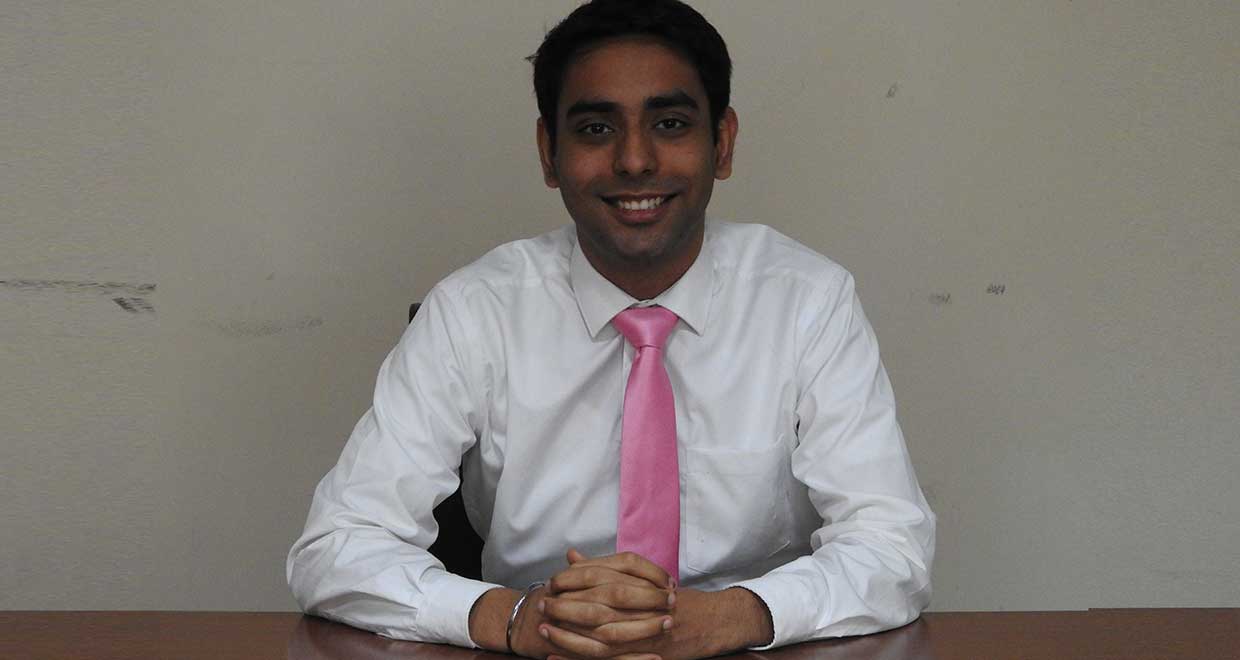

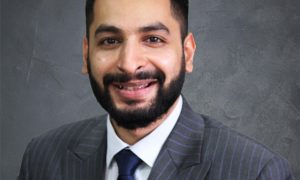

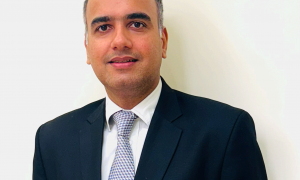



















Pingback: How should a law student prepare for UPSC civil services examination - iPleaders